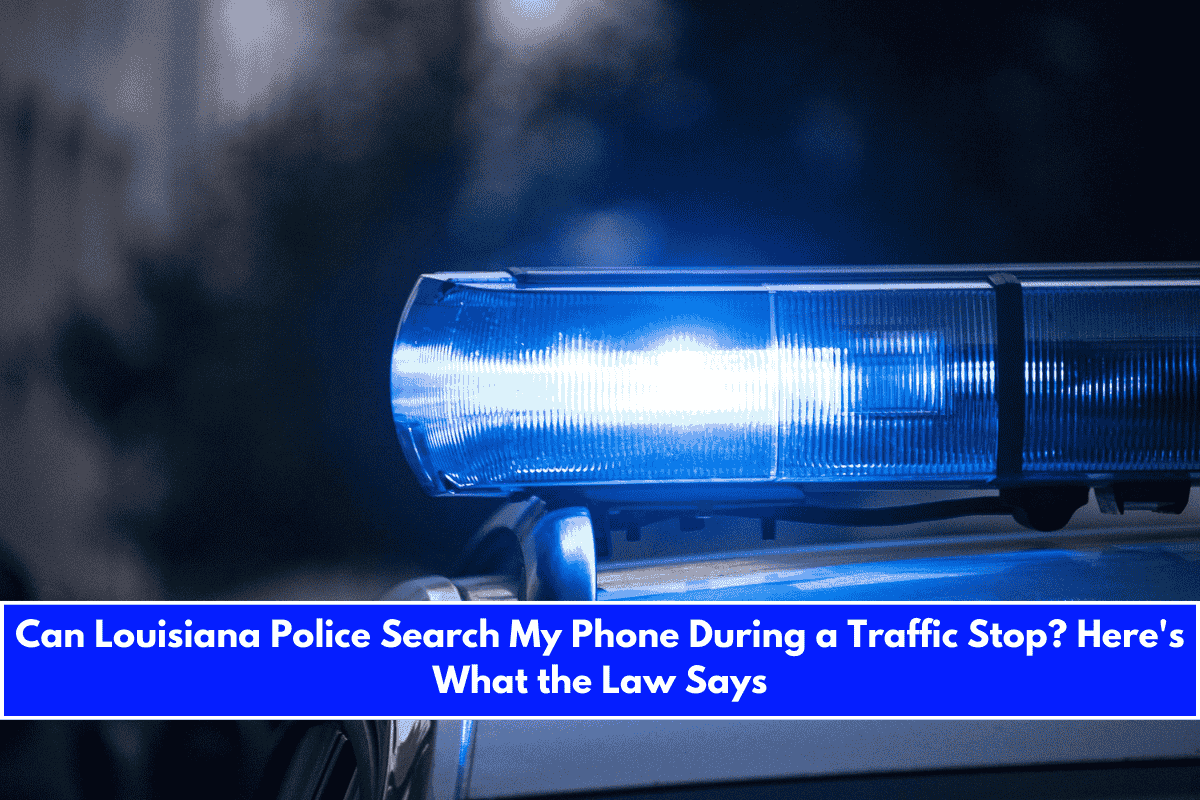Louisiana police cannot search your cell phone during a traffic stop without your consent or a valid search warrant. Your phone is protected by the Fourth Amendment, which guards against unreasonable searches and seizures.
Unless you voluntarily agree to a search, officers must have a warrant signed by a judge to legally access your phone’s contents.
Exceptions: Search Incident to Arrest
If you are arrested during the traffic stop, police may search your person and immediate surroundings for weapons or evidence.
However, even in the case of an arrest, the U.S. Supreme Court has ruled that searching the digital contents of a cell phone generally requires a separate warrant-simply being arrested does not automatically give police the right to search your phone.
What You Should Do
- You have the right to refuse consent to a search of your phone. Clearly state, “I do not consent to a search of my phone.”
- If officers ask to search your phone, you can ask to see a warrant. Without one, you do not have to comply.
- If you are not under arrest, police cannot search your phone unless you give permission.
Key Takeaways
- Police need your consent or a warrant to search your phone during a traffic stop in Louisiana.
- If you are arrested, police still generally need a warrant to search your phone’s digital contents.
- You have the right to refuse consent and to ask to see a warrant.
Knowing your rights can help you protect your privacy during police encounters in Louisiana.
Sources:
- https://legis.la.gov/legis/Law.aspx?d=112364
- https://www.ddclaw.net/criminal-defense-faq-archives/can-police-conduct-a-search-without-a-warrant/
- https://ossiebrown.com/blog/is-louisiana-a-stop-and-id-state/
- https://www.laaclu.org/en/know-your-rights/interacting-police











Leave a Reply